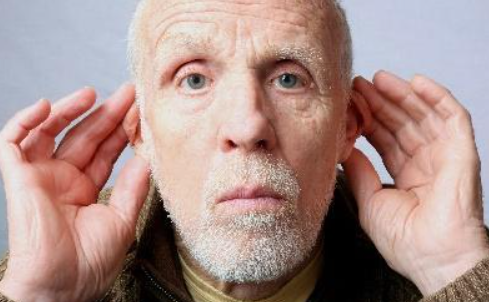
Join us for an innovative study day designed to explore effective communication strategies in palliative care, focusing on those with hearing difficulties. We will cover key topics such as Advance Care Planning and teach practical approaches for these important conversations with individuals experiencing different levels of hearing loss.
Hearing loss can significantly impact understanding and communication. This is especially important in our roles as palliative care practitioners, as we have many important conversations with patients, those important to them, and colleagues.
The day will begin with an introduction to hearing loss, covering its prevalence, types of hearing loss, and common misconceptions. We will blend practical techniques with theoretical knowledge throughout the day to give a comprehensive overview of how we can improve our communication skills.
We will also identify barriers and facilitators to communication, discuss how best to work with interpreters, touch on the use of British Sign Language and lip reading, and offer a livestream session with volunteers who have lived experience of hearing loss.
This study day, which is part of our broader suite of communication skills training, promises to be informative, interactive, and enjoyable.
Whatever your role, you are welcome to join us!
Taking place on the 5th of September 2025, 09.30-16.00.
Location: In-person (Oxford)
CPD Credits: N/A
+ Venue
Oxford Centre for Education & Research in Palliative Care,
Sobell House, Churchill Hospital,
OX3 7LE,
Oxford.
+ Speakers
Facilitators:
Laura Thirlwall - Manager dDeaflinks Staffordshire
Afroditi Kouzouna - Honorary Lecturer at Keele University
Kate Butcher - Education Lead, OxCERPC
Laura Thirwall - Manager dDeaflinks Staffordshire
I began my dDeaflinks journey as a volunteer back in 2007. Like much of the population, I was unaware of just how many challenges those living with hearing loss face daily. Now fluent in British Sign Language and with 17 years' experience of directly supporting the dDeaf community, I am very proud to still be a part of a small unfunded charity making a big difference. We work to raise deaf awareness, give a voice to the deaf community, and improve service access. It's not just a job for me; it's a passion.
Kate Butcher - Education Lead at OxCERPC, Nurse Specialist
Kate is the Education Lead at OxCERPC and a nurse specialist within the hospice. She brings extensive experience in district nursing and community practice development, working with staff across care homes, primary care, and acute settings. In addition to facilitating learning across a wide range of palliative care topics, Kate has been delivering communication skills training for over 14 years at all levels of competence—foundation, intermediate, and advanced. Kate has an MSc in Clinical Leadership and a Post-graduate Certificate in Psychospiritual Care.
+ Course Programmes
Timings to be confirmed but will cover the following
>Understanding deafness
>Interactive tasks eg lip reading challenge, understanding tinnitus
>Examples of effective and ineffective communication using palliative care scenarios
>British Sign Language
>Lived experience: Q&A with volunteers
+ Course Aims
By the end of the session the learners will be able to:
Identify and understand the different levels of hearing loss.
Recognise and understand the barriers in communication and in healthcare provision for Deaf individuals and those living with hearing loss.
Build skills to develop strategies and approaches to effective communication with Deaf individuals and those living with hearing loss.
Enhance patient-centred care within the multidisciplinary team by being able to advocate for the person with hearing loss.
Gain a general understanding of British Sign Language and learn some relevant signs when caring for somebody with palliative care needs.
Promote equality, diversity and patient-centred care.



